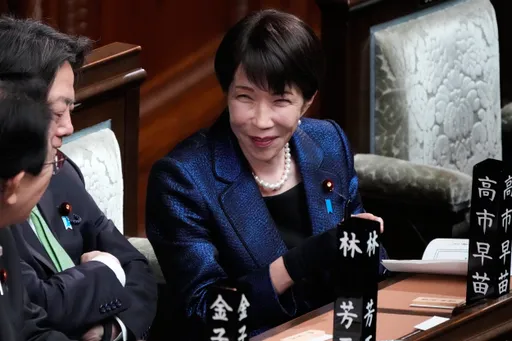Election authorities in Lebanon have started the counting process as polling stations for the country's parliamentary elections closed their doors.
Polls stations across Lebanon opened early at 7:00 am (0400GMT) and closed at 7:00 pm on Sunday, with over 3.91 million voters over the age of 21 eligible to cast a ballot.
The counting process started in the presence of the representatives of the competing lists and candidates, the Lebanese official news agency said.
Following the end of voting, Lebanese Prime Minister Najib Mikati voiced hope that the elections would bring a new parliament that helps the country recover from its economic crisis.
He added that voter turnout in the elections, which exceeded 50 in many areas, along with a decision to allow Lebanese expatriates to vote, were important achievements for the country.
A total of 718 candidates are running for places in the 128-seat parliament, according to the Interior Ministry.
Initial results are expected to come out on Monday morning, with the Interior Ministry to announce the official results later.
READ MORE:Lebanon’s elections: a short guide
'Voting for more of the same'
Independents can hope for more than the lone seat they clinched in 2018 but most of parliament's seats will remain in the clutches of the very political class that is blamed for the country's woes.
One of the most notable changes in the electoral landscape is the absence of former prime minister Saad Hariri, which leaves parts of the Sunni vote up for grabs by new players.
The outgoing chamber was dominated by the Iran-backed Shia movement Hezbollah and its two main allies: the Shia Amal party of Speaker Nabih Berri and the Christian Free Patriotic Movement of President Michel Aoun.
"It seems almost impossible to imagine Lebanon voting for more of the same – and yet that appears to be the likeliest outcome," said Sam Heller, an analyst with the Century Foundation.
Since the last election, the country was mutilated by an August 2020 blast at the Beirut port that went down as one of the largest non-nuclear explosions in history and deepened one of the most spectacular economic downturns of our time.
The Lebanese pound has lost 95 percent of its value, people's savings are blocked in banks, minimum wage won't buy a tank of petrol and mains electricity comes on only two hours a day.
More than 80 percent of the population is now considered poor by the United Nations, with the most desperate increasingly attempting perilous boat crossings to flee to Europe.
READ MORE: Lebanon’s 2019 crowd mounts challenge to old political elite























